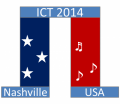Google Search
C3: Cooling
Efficient distillation methods are vital for several applications including desalination, reduction of chemical wastes, and petroleum distillation. Access to clean water was identified as one of the Grand Engineering Challenges of the 21st Century by the US National Academy of Engineering and the World Health Organization. Although distillation is known to be the best method for obtaining pure water, desalination methods have mainly focused on alternative techniques such as reverse osmosis and filtration. Distillation is wrongly construed as inefficient in energy consumption because traditional distillation methods consume lots of energy to overcome the enthalpy of vaporization.
This paper describes the concept of recycling heat of condensation using a novel type of thermoelectric heat pump to heat the liquid phase in the evaporator and significantly reduce the burden of providing the enthalpy of vaporization. These highly efficient, low-cost and compact distillation reactors are based on FLO-TE, a novel thermoelectric heat pump that results in a 30-fold increase in the distillation rate. FLO-TE heat pumps exploit fluidic techniques to reduce the phonon-conduction through thermoelectric devices, and enhance the COP. This paper describes the detailed system design of FLO-TE devices with bismuth telluride thermoelectric coolers and microchannel water heat exchangers that attain a COP > 4 for ΔT = 30°C at room temperature.
The FLO-TE heat pump project at Sheetak Inc. is funded in part by the US Department of Energy ARPAE.
